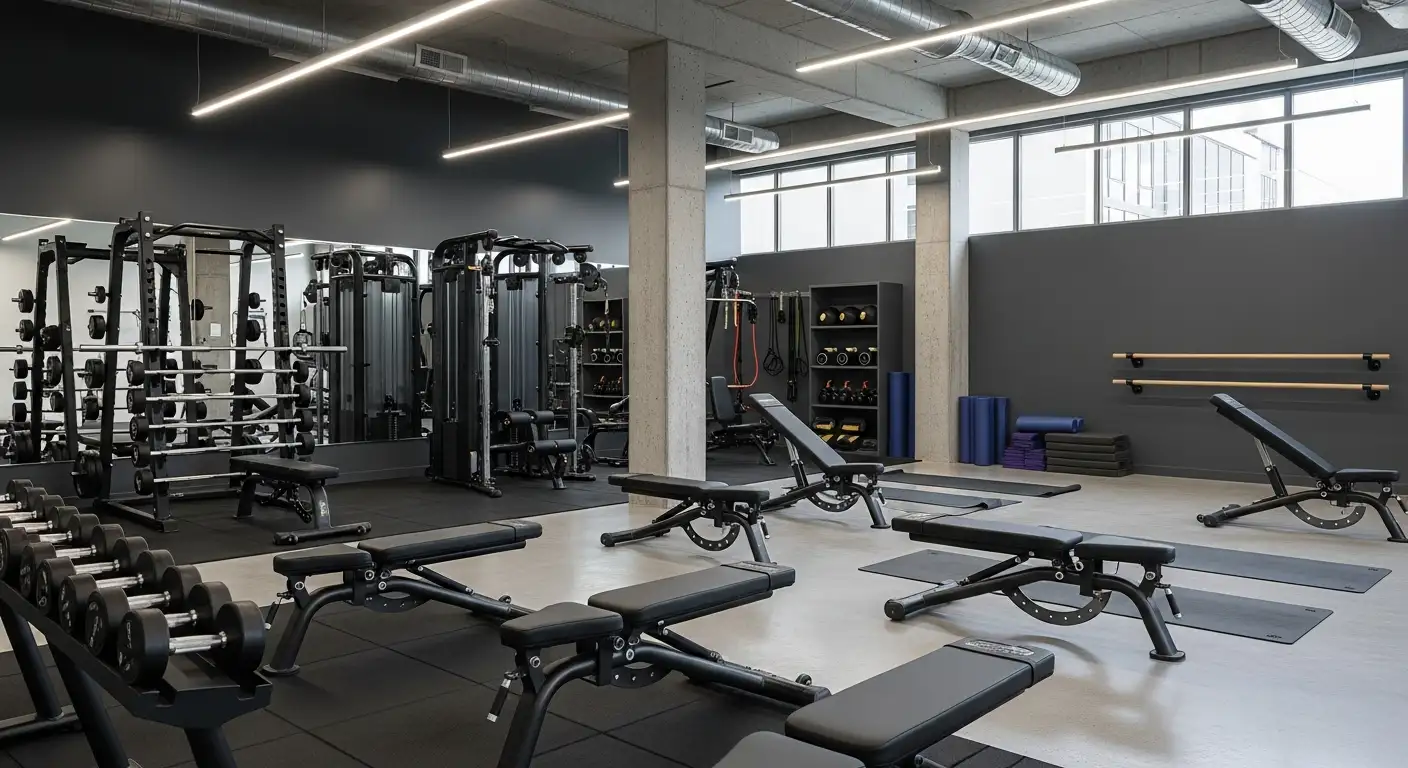Understanding Knee Surgery Recovery
Factors Influencing Recovery
Recovery from knee surgery varies widely based on several factors. Age, overall health, weight, and adherence to physical therapy play pivotal roles in determining recovery success. The type of procedure performed and individual circumstances, such as occupation, also significantly impact recovery timelines. For instance, while some individuals may return to work within a few weeks, others might require more time before they can handle heavy lifting.

Regular exercise is crucial for a full recovery following knee surgery. Walking for 30 minutes two to three times daily can significantly aid in restoring strength and mobility to the knee. Physical therapists often recommend daily exercise routines lasting 20 to 30 minutes, or even multiple sessions a day, to ensure optimal recovery.
Postoperative Care Importance
Postoperative care is essential for successful recovery after knee surgery. This involves a comprehensive approach that includes physical therapy, blood management, pain medication, antibiotics, and blood clot prevention methods [4]. The efficacy of rehabilitation largely depends on the individual's commitment to following the home exercise program developed by their therapists [5].
A well-structured postoperative care plan can help mitigate complications and enhance recovery outcomes. It emphasizes the importance of not only professional medical interventions but also active patient participation in their recovery process.
Understanding these factors and the importance of postoperative care can help individuals better navigate their recovery journey and achieve optimal results.
Knee Replacement Recovery Timelines
Understanding the recovery timelines for knee replacement surgeries is crucial for managing expectations and planning postoperative care. Here, we will look at the timelines for total knee replacement and revision knee replacement surgeries.

Total Knee Replacement
Total knee replacement is a common procedure aimed at improving the function and relieving the pain of a severely damaged knee joint. The recovery time can vary based on several factors, including the patient's overall health, the extent of the surgery, and adherence to postoperative care guidelines [6].
Most patients need to stay in the hospital for 1 to 4 days following surgery. The initial days focus on pain management and beginning physical therapy. Returning to work can take anywhere from a few days to several months, depending on the physical demands of the job.
Within 3 to 6 weeks, many patients can resume their usual activities, although full recovery may take 3 to 6 months. In some cases, it may take up to a year for the knee to become as strong and resilient as possible [7].
Revision Knee Replacement
Revision knee replacement is performed when a previous knee replacement has failed or worn out, necessitating the replacement of some or all of the components. This surgery is generally more complex and may require a longer recovery period.
Patients typically stay in the hospital for 3 to 5 days following a revision knee replacement. The extended hospital stay is due to the more intricate nature of the surgery and the need for close postoperative monitoring.
Returning to work may take several weeks to several months, influenced by the complexity of the surgery and the patient's overall health. Usual activities can generally be resumed within 6 to 12 weeks, but full recovery may take 6 months to a year.
It's important for patients to adhere to their prescribed rehabilitation program and follow their healthcare provider's advice to ensure a successful recovery. By understanding these timelines and being committed to the recovery process, patients can better manage their expectations and enhance their overall recovery experience.
Recovery After Knee Arthroscopy
Knee arthroscopy is a minimally invasive surgical procedure often used to diagnose and treat various knee conditions. The recovery process following knee arthroscopy can vary depending on the specific procedures performed and individual patient factors.
Arthroscopy Recovery Overview
Generally, patients can expect mild to moderate pain for 2-4 weeks post-operation after knee arthroscopy, with swelling lasting from 3-6 weeks. The total recovery period can take 2-3 months for most patients. The timeline for returning to work and daily activities also varies based on the nature of one's job and the extent of the surgery:
Patients can typically begin walking on the same day of surgery, although walking may be limited during the initial 2-4 weeks post-surgery. The use of crutches or a walker may be necessary during this period.

Specific Procedures Recovery
The recovery timeline can vary significantly based on the specific procedure performed during the arthroscopy:
Meniscus Surgery
For meniscus surgery, recovery is generally quicker compared to other procedures. Patients can expect to return to normal activities, including light jogging and leg workouts, by weeks 4-6 if swelling and pain have sufficiently reduced. Mild to moderate pain is common for the first 2-4 weeks, with pain usually becoming mild after 3 weeks and returning to baseline 6 weeks after surgery [8].
ACL Reconstruction
ACL reconstruction typically requires a longer recovery period than meniscus surgery. Total recovery can take up to 6 months, with the initial phase focused on reducing swelling and regaining range of motion. Patients may need to use crutches for the first few weeks and engage in a structured rehabilitation program to rebuild strength and stability in the knee.
Cartilage Restoration
Cartilage restoration techniques often involve a longer and more complex recovery process. Walking may be restricted for several weeks, and patients must adhere to specific guidelines to protect the knee during the healing process. The overall recovery timeline can extend to several months, depending on the extent of the surgery and the patient’s adherence to rehabilitation protocols [8].
Understanding the recovery timelines for different knee procedures can help patients set realistic expectations and plan their rehabilitation journey effectively.
Rehabilitation and Physical Therapy
Understanding the importance of rehabilitation and physical therapy is crucial for a successful recovery from knee procedures. These practices ensure that patients regain mobility, strength, and function in their knees, enabling them to resume daily activities with confidence.
Rehabilitation Importance
Rehabilitation is a critical component of the recovery process following knee surgery. It typically begins within 24 hours after the procedure and can continue for up to three months or longer, depending on the individual's progress and specific needs [4]. The primary goals of rehabilitation are:
- Increasing circulation to prevent blood clots
- Reducing swelling and inflammation
- Strengthening the muscles around the knee
- Improving joint flexibility and range of motion
- Restoring functional mobility
According to Healthline, most patients can walk without an assistive device after three weeks and drive after four to six weeks post total knee replacement surgery. Rehabilitation after knee surgery typically lasts about 12 weeks.
Early Postoperative Exercises
Early postoperative exercises are essential for promoting healing and preventing complications. These exercises are designed to increase circulation, strengthen muscles, and improve knee movement. Some recommended early exercises include (OrthoInfo):
- Quadriceps Sets: Tighten the thigh muscles and hold for a few seconds.
- Straight Leg Raises: Lift the leg while keeping it straight.
- Ankle Pumps: Move the foot up and down to enhance blood flow.
- Knee Straightening Exercises: Extend the knee fully and hold the position.
- Bed-Supported Knee Bends: Bend the knee while lying down, using the bed for support.
- Sitting Supported Knee Bends: Bend the knee while sitting, using a chair for support.
Walking is also essential for knee recovery post-surgery. Patients are encouraged to start walking short distances in their hospital room soon after the procedure. Stair climbing and descending are recommended as excellent strengthening and endurance activities that also require flexibility.
As patients progress in their recovery, more advanced exercises can be introduced to further enhance muscle strength and knee mobility. These advanced exercises include standing knee bends, assisted knee bends, knee exercises with resistance, and excercycling [3].
By incorporating these exercises into their rehabilitation routine, patients can effectively support their recovery and reclaim their mobility after knee procedures.
Successful Recovery Strategies
Recovery from knee procedures involves a combination of pain management and a commitment to regular exercise. These strategies are essential for restoring mobility and ensuring a successful recovery.
Pain Management
Effective pain management is critical for postoperative recovery and participation in rehabilitation. Tailored pain management plans that utilize multiple medications targeting different pain mechanisms can significantly reduce discomfort and improve recovery outcomes. Anesthesiologists play a key role in developing these personalized plans, taking into account the patient's condition, medical history, and personal preferences.
Post-surgical pain relief is essential for effective participation in physical therapy and rehabilitation. Addressing pain adequately helps patients engage in necessary exercises and activities vital for their recovery.
Commitment to Exercise
Regular exercise is crucial for regaining knee strength and mobility after surgery. Physical therapists often recommend a regimen that includes walking, specific exercises, and stretching. According to OrthoInfo, walking for 30 minutes 2 to 3 times daily and engaging in targeted exercises for 20 to 30 minutes multiple times a day can significantly aid recovery.
Early post-operative exercises such as quadriceps sets, straight leg raises, and ankle pumps help increase circulation, strengthen muscles, and improve knee movement [3]. Consistent exercise and adherence to physical therapy guidelines are fundamental for a full and swift recovery.
Specific Surgical Recovery Timelines
ACL Reconstruction
ACL (Anterior Cruciate Ligament) reconstruction is a common procedure for individuals with significant knee injuries. Full recovery from ACL reconstruction surgery typically takes 6-9 months for healthy, active patients. The surgical healing process itself lasts about 6-8 weeks. Rehabilitation programs play a crucial role in recovery, focusing on restoring range of motion, strengthening muscles, and regaining balance. Swelling and stiffness can be expected post-surgery [10].
Meniscus Repair
Recovery from meniscus repair surgery can vary depending on the complexity of the tear and the type of procedure performed. For a straightforward arthroscopic meniscectomy, full healing may take 4-5 months. Patients can typically bear weight on the knee immediately post-surgery, using crutches for the first 2-7 days. Heavy work or sports are generally restricted for the initial 4-6 weeks [10].
For more complicated arthroscopic repairs, the knee may need to be immobilized for 2 weeks, followed by limited motion for another 2 weeks. Patients may use crutches for 4-6 weeks, with a potential return to heavy activities or sports in 3-6 months.
Patellar Tendon Tears
Recovery from patellar tendon tears can be a lengthy process, typically taking 6-12 months for full recovery. Surgical options include both arthroscopic and full open surgery. Post-surgery, weight-bearing restrictions are in place for the initial weeks, followed by a gradual progression to full weight-bearing exercises. Rehabilitation focuses on strengthening the joint and surrounding muscles.
Understanding these recovery timelines can help individuals set realistic expectations and better plan their return to daily activities and work.
References
[1]: https://drhermanbotero.com/what-factors-influence-your-recovery-after-a-knee-replacement-operation/
[2]: https://www.medicalnewstoday.com/articles/323300
[3]: https://orthoinfo.aaos.org/en/recovery/total-knee-replacement-exercise-guide/
[4]: https://www.hss.edu/condition-list_knee-revision.asp
[5]: https://www.allinahealth.org/health-conditions-and-treatments/health-library/patient-education/total-knee-replacement/after-surgery/knee-exercises
[6]: https://www.medicalnewstoday.com/articles/what-not-to-do-after-knee-replacement
[7]: https://www.healthline.com/health/total-knee-replacement-surgery/rehabilitation-timeline
[8]: https://alexanderorthopaedics.com/blog/knee-arthroscopy-recovery-time/
[9]: https://www.asahq.org/madeforthismoment/preparing-for-surgery/procedures/knee-surgery/
[10]: https://www.orthonorthcounty.com/blog/recovery-from-arthroscopic-knee-repair-surgery-20410.html





